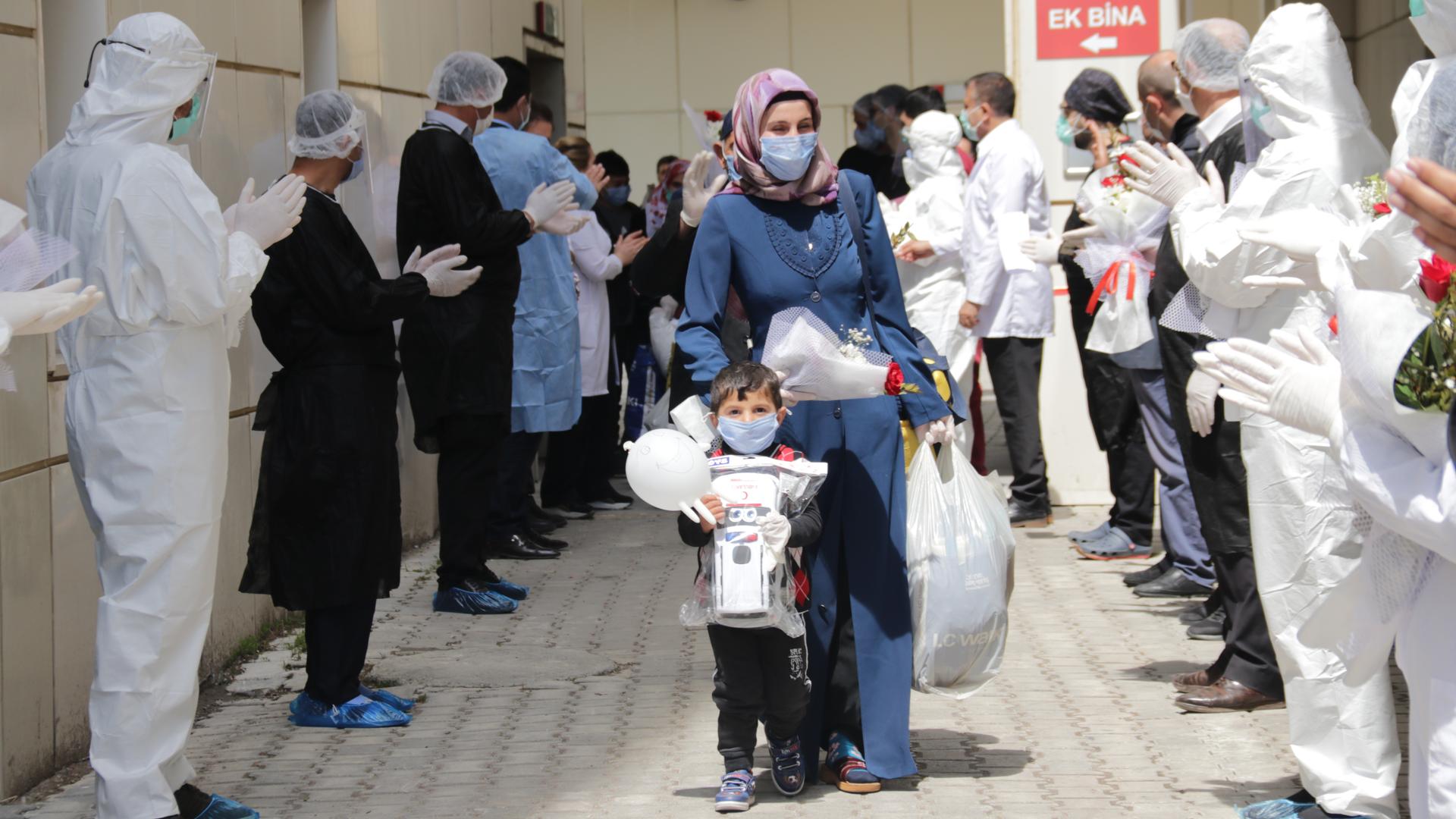Turkey’s healthcare is putting up a brave fight against the novel coronavirus, trying its best to keep the number of deaths as low as possible, and succeeding so far.
“Despite the pandemic, even now our service and intensive care rooms are not as full as before the pandemic,” Turkish Minister of Health Fahrettin Koca said on Wednesday, assuring the public that the country’s health infrastructure was fully prepared to tackle the crisis.
Koca said the ‘unseen hero’ of Turkey’s battle against the coronavirus was its public, which has shown remarkable ‘faith’ in government institutions.
At the start of the pandemic, Turkey’s intensive care bed occupancy rate was about 80 percent. But now, according to the government figures, it has reduced to 60 percent.
“As long as measures are followed, we do not expect a new wave of Covid-19 in Turkey,” he said, adding that compared to several European countries and the US, Turkey has a low death rate of 2.3 percent, compared to the number of positive cases.
When we look at other developed countries, the death rate in the US is 5.3 percent, Spain is 10.5 percent, Italy is 13.2 percent, Germany is 3.5 percent, the UK is 13.5 percent, France is 17.3 percent.
What has helped Turkey in keeping the coronavirus death toll low so far?
Health sector reform
Under the Health Transformation Programme, which began in 2003, Turkey has augmented its hospitals with new technology and skilled workforce. The Ministry of Health audits all hospitals twice a year in accordance with quality, safety and service standards together with a national accreditation system.
Numerous health facilities also have accreditation from international organisations such as the Joint Commission International (JCI) and the ISO 9001 certification. Most of the facilities also offer five-star service.
New city hospital projects
The Turkish government has introduced huge city hospital projects, offering high-tech equipment in well-organised health centres across the country.
With these city hospitals, nearly 15,000 extra beds have been added into the current system.
The last to be inaugurated, The Basaksehir City Hospital, can provide health services to 23,600 patients over an indoor space of 1 million square metres, the project website said.
The hospital has 2,686 beds, which all have intensive care equipment, and all of the beds can be used for intensive care when necessary, Koca said at the opening ceremony of the hospital.
Large intensive unit capacity and daily high testing numbers
Turkey has an edge over its neighbours, with more intensive care units than many European countries, including the UK, France, Russia, and China. It has 40 beds per 100,000 people according to Turkish Health Minister Fahrettin Koca. The US has 34.7 ICU beds while Germany is at 29.2 beds.
It has also increased its testing capability to levels higher than most countries, coming sixth overall from over 200 virus-hit countries and territories, ahead of countries like France and the UK, which have a higher number of confirmed cases.
“Turkey has increased its daily testing to around 40,000/day. There are encouraging signs (decreasing infection rate, increasing recoveries, plateauing of numbers of ICU patients and deaths) that we are ‘flattening the curve’,” wrote Turkey’s Communications Director Fahrettin Altun on Twitter.
The whole Covid-19 treatment process is also free to all citizens under a presidential decree.










Discussion about this post